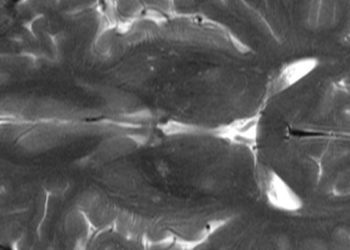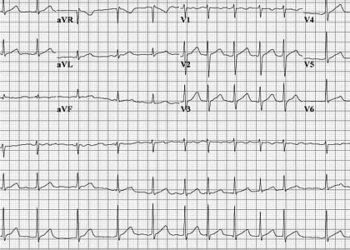Remote ischemic preconditioning reduced myocardial injury in CABG patients
Image: PD
1. Remote ischemic preconditioning in CABG patients decreased myocardial injury in the first 72 hours after surgery.
2. All-cause mortality and rates of major adverse cardiac and cerebrovascular outcomes were significantly lower in patients that underwent remote ischemic preconditioning compared to those that did not.
Evidence Rating Level: 2 (Good)
Study Rundown: This single-center study of patients undergoing CABG evaluated the safety and efficacy of remote ischemic preconditioning. Remote ischemic preconditioning, induced by alternating ischemia and reperfusion of the left arm, was found to reduce perioperative cardiac troponin I (cTnI) levels. Additionally, after a mean follow-up period of 1.54 years, all-cause mortality was lower in patients who underwent remote ischemic preconditioning than the control group.
While prior studies have shown that ischemic preconditioning improves cardiac biomarker profiles, the authors’ finding of reduced mortality is particularly exciting given its clinical relevance. Because this was a study to evaluate safety and efficacy, exclusion criteria prohibited many high-risk patients from entering the study. Therefore, the results cannot be generalized to all patients undergoing CABG. Further, the small size of the study and the relatively short duration of follow-up reduces its power in detecting rare but important outcomes, including mortality. In order to better evaluate these infrequent outcomes, a larger study with a longer follow-up period will be necessary.
Click to read the study in The Lancet
Click to read an accompanying comment in The Lancet
Relevant Reading: Cardioprotection: chances and challenges of its translation to the clinic
Author Comments: According to Professor Heusch, “The results of our study are very encouraging that remote ischaemic preconditioning not only reduces heart muscle injury but also improves long-term health outcomes for heart bypass patients, and we hope that these benefits will be confirmed in larger prospective studies which are currently taking place.”
“The beauty of remote ischaemic preconditioning is that it is non-invasive, simple, cheap, and safe,” adds Dr Thielmann. “This procedure could be a promising and simple strategy to protect patients’ heart muscle during surgery and hopefully improve health outcomes after surgery.”
In-Depth [double-blind prospective randomized controlled trial]: This study randomized 329 patients undergoing elective first-time CABG surgery under cardiopulmonary bypass to receive remote ischemic preconditioning or no ischemic preconditioning. Exclusion criteria included renal insufficiency and acute coronary syndrome within the previous 4 weeks. Patients with diabetes were initially excluded; after inclusion criteria were extended, 61 patients with diabetes entered the study. The patients assigned to the intervention group underwent three cycles of 5 minutes of ischemia, induced by inflation of a blood pressure cuff on the left arm to 200 mm Hg, followed by 5 minutes of reperfusion. The patients assigned to the control group had a cuff placed around their arm but not inflated.
The primary endpoint was myocardial injury as represented by geometric mean area under the curve (AUC) of cTnI. The mean geometric AUC was reduced in the remote ischemic precondititioning group compared to the control group (266 ng/mL, 95% CI 237-298 vs. 321 ng/mL, 95% CI 287-360 ng/mL). All-cause mortality, assessed over a mean follow-up period of 1.54 (SD 1.22) years, was lower in the group who received ischemic preconditioning (1.9% vs. 6.9%) with a hazard ratio of 0.27 (95% CI 0.08–0.98). Major adverse cardiac and cerebrovascular events were also lower in the treatment group during this time period (13.9% vs. 18.9%) with a hazard ratio of 0.32 (95% CI 0.14-0.71).
By Hayley Walker and Mimmie Kwong
© 2013 2minutemedicine.com. All rights reserved. No works may be reproduced without expressed written consent from 2minutemedicine.com. Disclaimer: We present factual information directly from peer reviewed medical journals. No post should be construed as medical advice and is not intended as such by the authors, editors, staff or by 2minutemedicine.com. PLEASE SEE A HEALTHCARE PROVIDER IN YOUR AREA IF YOU SEEK MEDICAL ADVICE OF ANY SORT.









